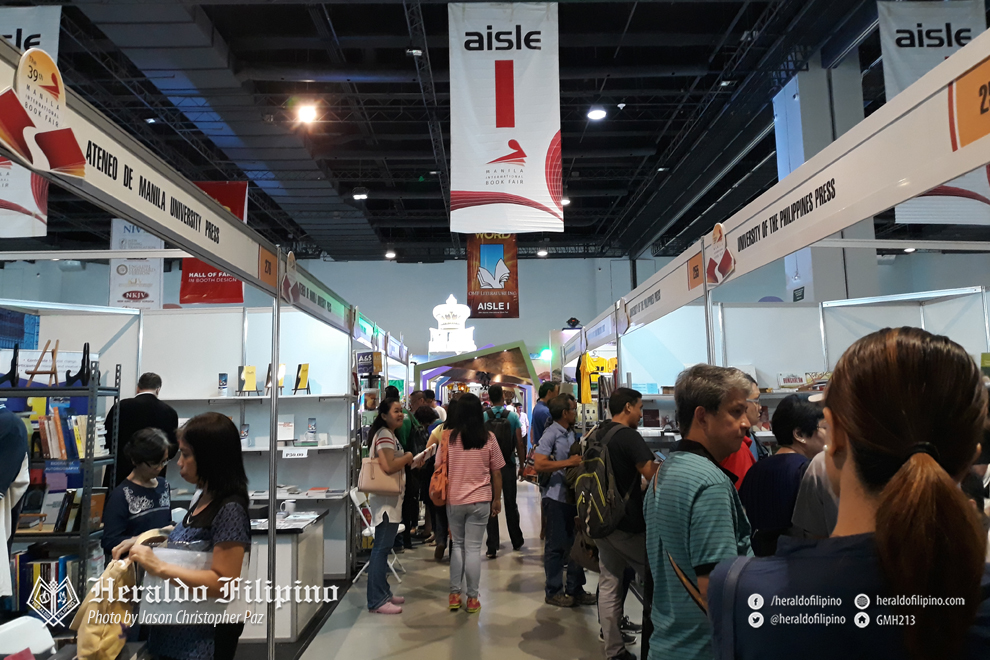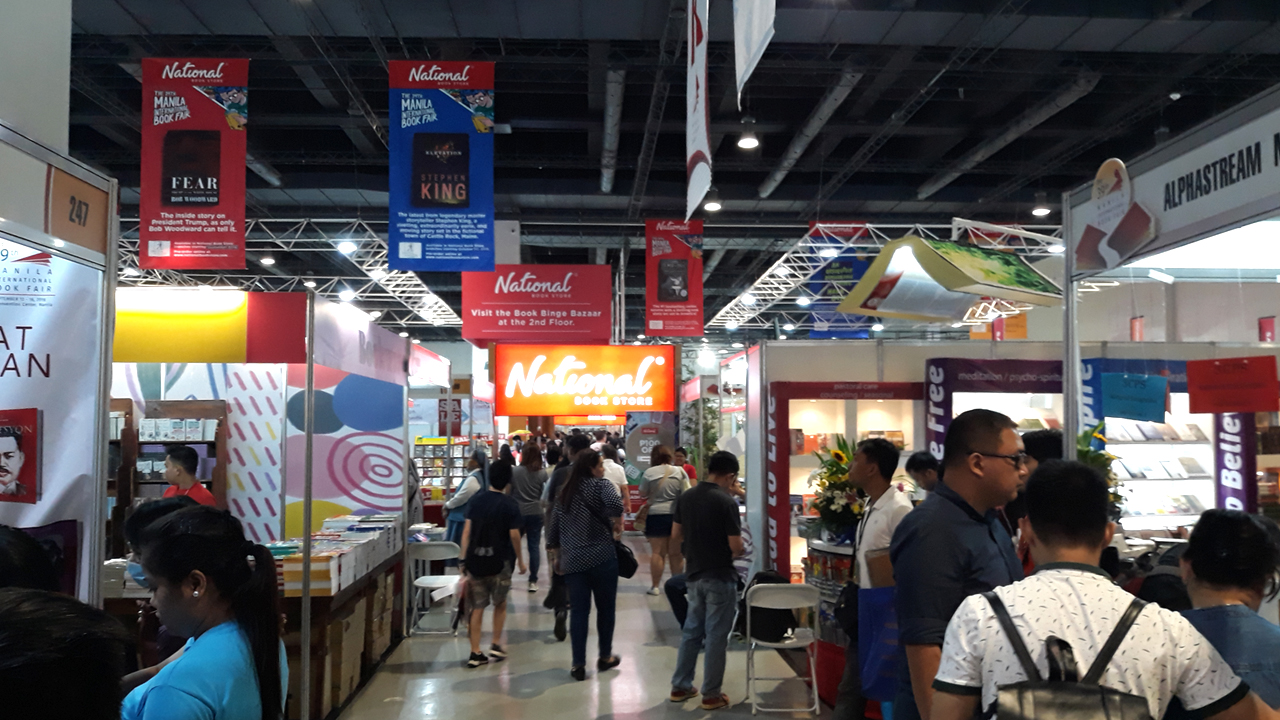The price we pay to read
Now on its 39th year, the Manila International Book Fair (MIBF) opened its doors to welcome book lovers last September 12 to 16 at the SMX Convention Center, Pasay City. Being the longest-running book fair in the country with 150,000 expected annual visitors, books for leisure and academic reading were sold in cheaper prices on the shelves of major and minor publishing houses in the country such as National Bookstore, Fully Booked, Summit Books, and Komisyon ng Wikang Filipino among others. Book launches and book signings from famous and novice authors and comic illustrators were also one of the reasons why enthusiasts flocked to the SMX Convention Center despite the Typhoon Ompong.
However, while bookworms were enjoying hoarding books in the cheapest way possible, the surging threats of the newly passed TRABAHO (Tax Reform for Attracting Better and High-quality Opportunities) bill or House Bill 8083 were one step closer in laying another burden to the country—but this time, to the Filipino authors and readers.
The rails of TRAIN 2
This year’s MIBF just might have been your last shot in buying cheap and discounted high quality novels and comics books, as TRABAHO bill threatens to impose taxes on books. TRABAHO bill, also known as TRAIN 2, is the second package of the TRAIN law responsible for the massive inflation on the prices of goods and services the Philippine economy is facing.
Senator Vicente Sotto III, the author of TRABAHO Bill, seeks to repeal Section 12 of Republic Act No. 8047 or the Book Publishing Industry Development Act of 1995 which gives exemptions to books, magazines, periodicals, newspapers published by publishers, printing, distribution and circulation from value added tax (VAT).
As the TRABAHO bill has surpassed its third and final reading in the House of Representatives, book prices will most likely skyrocket as raw materials will be mainly affected, much like goods and services during TRAIN 1. However, imported books will not be subjected to tax and will remain duty-free as stated in Section 109 of the Tax Code and Section 800 of the Customs Modernization and Tariff Act (CMTA), an act that facilitates international trade and protects the government from custom fraud and illegal acts.

Clearing the rails
The local literary community comprised of authors, teachers, readers, and cultural workers expressed their disapproval in imposing taxes on books and firmly rejected Sotto’s provision, stating that it will only be a detriment to our education system and will eventually kill the book industry, especially small publishing companies and independent publishers.
On September 8, literary organizations, Linangan sa Imahe, Retorika at Anyo (LIRA) and Unyon ng mga Manunulat ng Pilipinas (UMPIL) created and circulated a petition on Facebook to oppose the growing and alarming effects of TRABAHO to the book industry. In their petition, LIRA expressed that higher prices of books, local and foreign, would make them harder to access; and TRABAHO will just merely set Philippine literature aside, despite many Filipino writers depending on writing and publishing books for their livelihood.
An editorial published in the Philippine Daily Inquirer has also objected to the provision of taxing books, stating that “taxing books and making educational materials more expensive—rendering them out of reach, eventually, to many ordinary Filipinos—is antidemocratic, an assault on the essential republican ideal of an informed and critical citizenry.”
To avoid any further misunderstandings, Director for Legal and Legislative at the Strategy, Economics and Results Group of the Department of Finance (DOF) Atty. Euvimil Nina Asuncion clarified the proposed bill concerning book and publishing tax as of September 13, 2018. According to Asuncion: 1) TRABAHO reduces corporate taxes; 2) books and publishing will remain incentivized and nontaxed 3) the taxes on raw materials and the importation of raw materials will stay the same and will not increase; 4) the Philippines will uphold the Agreement on the Importation of Educational, Scientific and Cultural Materials of 1952 or the United Nations Educational, Scientific and Cultural Organization (UNESCO) Florence Agreement that states that no books, documents, or publications, shall be charged with VAT; 5) the repeal of RA No. 8047 is for “alignment” with the new incentive system such as implementing performance-based incentives; 6) tax incentives are not free so book publishers should pay higher tax.
***
Books, foreign or local, are guaranteed to always be nontaxable and duty-free under the Tax Code, CMTA, and the Unesco Florence Agreement. No matter the repeal of TRAIN 2., fellow Filipino writers and readers will continue their love for literature and fight for accessible and affordable books for all.
Sources:
esquiremag.ph.com
manilatimes.net.com
news.abs-cbn.com
nolisoli.ph.com
opinion.inquirer.net.com
rappler.com





